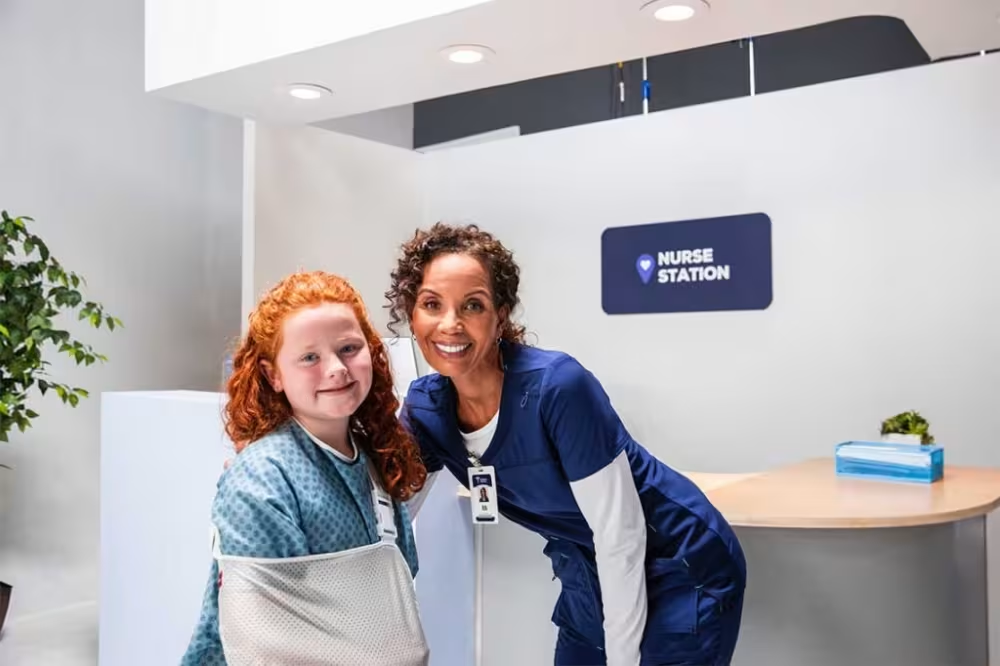Essential Nursing Skills: The Importance of Soft Skills in Nursing
Nursing students must master many skills and techniques. Beyond what you’ll learn in simulation labs or clinicals, soft nursing skills like communication, critical thinking, teamwork and professionalism are often based on social skills and personality. These can be just as important as technical skills for your success.

There’s no debate on the importance of technical skills in nursing, which is why nursing school curricula focus on giving students hands-on experience in simulation labs and clinical rotations. Soft skills for nurses, like handling interpersonal interactions well, being calm under pressure, and compartmentalizing tasks, can be equally important as times.
Nurses need a variety of skills in their nursing tool belt, and soft skills are often less emphasized than technical skills. By understanding the skills that every nurse needs, you can start identifying the nursing skill areas that you may need to work on throughout your education and career. With Find Nursing Schools, you can find the program that will help you develop and prepare for your entry into the nursing workforce.
What Are the Key Nursing Skills Every RN Needs?
Soft skills are important to your success as a nurse, but before diving into the key soft skills, it’s helpful to know the difference between hard and soft RN skills.
Hard skills, also known as technical skills, are measurable and quantifiable. They can be taught in formal education or through training. Most of the time, someone is considered proficient in a certain hard skill if they have a degree or certification. These skills are usually closely tied to a specific role or career field. They can fall into multiple categories, but some examples in nursing include:
- Proficiency in technology platforms
- Vital sign monitoring
- Wound care
Soft skills, on the other hand, are still important but more abstract. These nursing skills are often linked to someone’s personality and how they interact with others. You won’t receive a certificate or degree for mastering a soft skill because they are more universal and often a byproduct of learning the best practices of nursing.
Let’s look at some of the top soft nurse skill requirements and discuss why they’re important.
Communication
As a nurse you’ll be communicating with doctors, staff, patients and their loved ones almost nonstop throughout the workday. Additionally, nurses must understand how to communicate through their charts and notes to ensure that other healthcare staff are up to speed. Good communication can often signal empathy to patients and their families, making them feel more at ease.
Critical Thinking
Nurses must make critical decisions in high-stress scenarios. When approaching a patient’s care, nurses must be able to solve problems with a clear head, being precise with logic despite emotional situations.
Compassion
In a hospital environment, patients can become overwhelmed, especially when they don’t understand medical terminology or procedures. Nurses need to approach these situations with compassion to make patients feel safer and more confident in their care.

Professionalism
It’s important to present yourself as professional both for the reputation of the employer and for the comfort of the patients. In a nursing role this can mean adhering to any employer-specific protocols and working in a way that minimizes conflict.

Applying for your first nursing job can be daunting. Check out how to make yourself stand out on your application.
Teamwork
Working well with others that are on your care team or wing of the hospital is crucial to efficiency. It’s also helpful to understand what you and each individual member brings to any given scenario so that you can delegate tasks based off strengths.
Accountability
Taking responsibility for your actions is a part of accountability, but nurses can also gain respect by showing that they can handle higher level tasks. Both of these things in conjunction lead to a more effective team that improves on shortcomings and fills in any gaps due to absent team members or oversight.
Stress Management
Nurses need to be well-versed in keeping their cool in high-stress situations. This applies both during a shift and outside of work. The nursing profession entails long shifts and late nights, so it is crucial that nurses understand how to take time for themselves so they can give the best care for their patients

Critical Observation
Better known as attention to detail, critical observation involves analyzing information closely, paying even closer attention to anything that is easy to overlook or could be more efficient. Being proficient in critical observation often means that you can come up with unique solutions to complex problems.
Self-Development
Learning for nurses is never complete. The medical world is constantly changing and evolving with new techniques and protocols, so committing yourself to improving and maintaining your technical skills will make you a better nurse over time. Pursuing advanced degrees or further education also falls under this category. Self-development benefits both yourself and the patients you care for by bettering your nursing craft.
Resilience
Nursing is by no means an easy profession, and it can be tempting to become discouraged. Resiliency means that you can overcome challenges and move onto the next task, using setbacks as learning moments and moving forward to help more patients.
Why Soft Skills in Nursing Matter
A nurse’s soft skills often complement the technical skills that they’ve learned over time in school and clinicals. Administering treatment and charting patient care plans are certainly important, but without strong soft skills grounded in communication and critical thinking, your quality of care can end up lacking.
What does it look like to be in nursing school? Discover all that a day entails for a typical nursing student.

Soft skills also aid nurses in working with other medical professionals from a career standpoint. Productivity, efficiency, and communication are important abilities to deliver the best quality care. Perfecting multiple soft skills also helps enhance your reputation as a professional.
Developing and Improving Soft Skills for Nurses
It takes effort and reflection to intentionally develop soft nursing skills. By getting into the habit of self-evaluating your actions after your shifts or receiving feedback from a trusted mentor, you can start to grow your soft skills. By doing so, you may find that your technical skills grow as well.
How an ABSN Program Helps Build the Soft Skills Needed to Be a Nurse
While soft skills can’t necessarily be taught in a classroom setting, an Accelerated Bachelor of Science in Nursing (ABSN) program puts students in scenarios that work these skills and develop them over time. Through practice in simulation labs and clinical rotations, prospective nurses can become more well-rounded and ready to make a difference for their patients.
Choosing an ABSN program is difficult. With countless amounts of choices across the country, finding the right school for you can be overwhelming. At Find Nursing Schools, we are committed to connecting you to nursing schools based off your academic and geographic preferences. By filling out our online form, you can get in contact with nursing schools that work best for you and be on your way to a nursing career.

